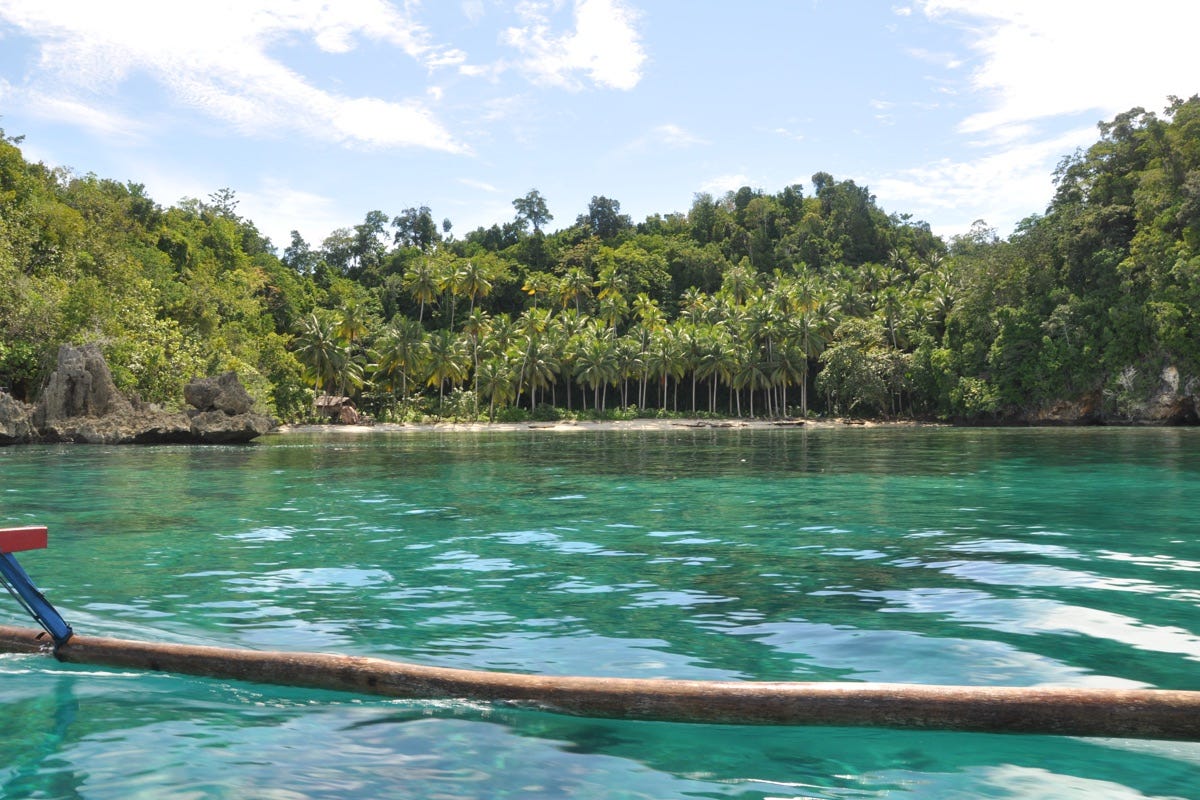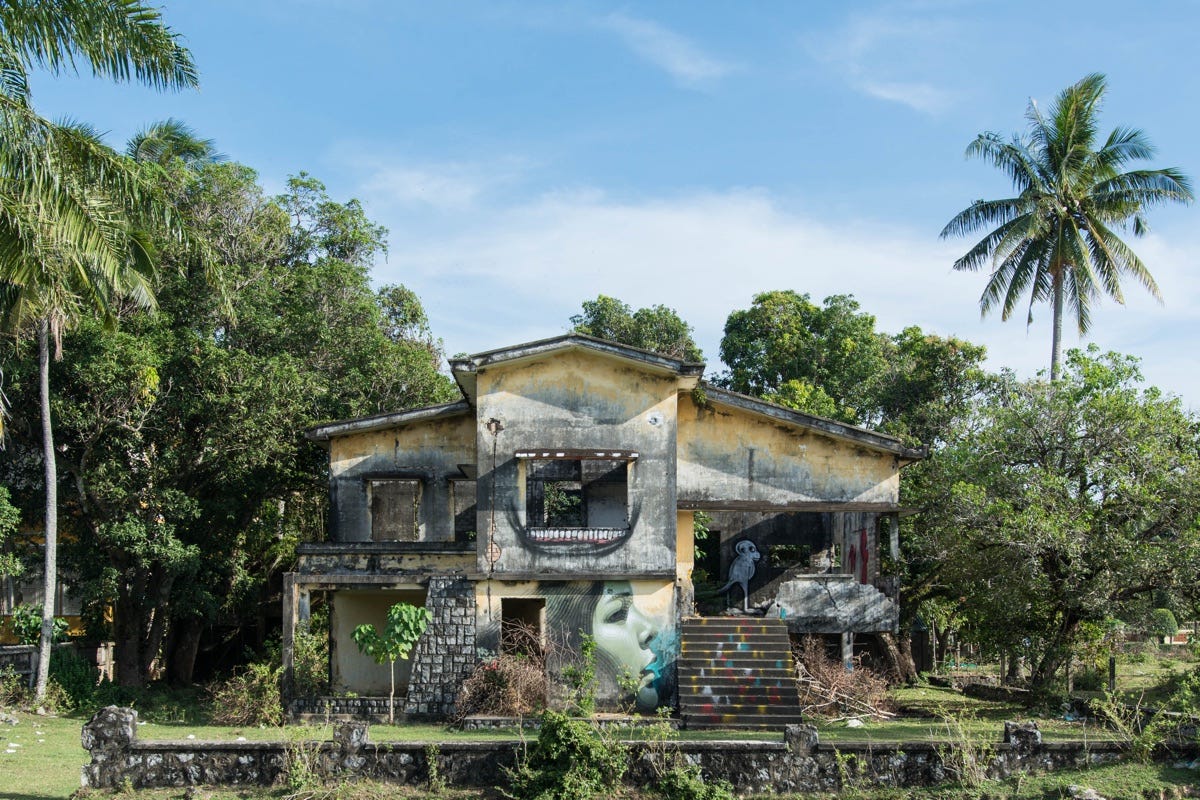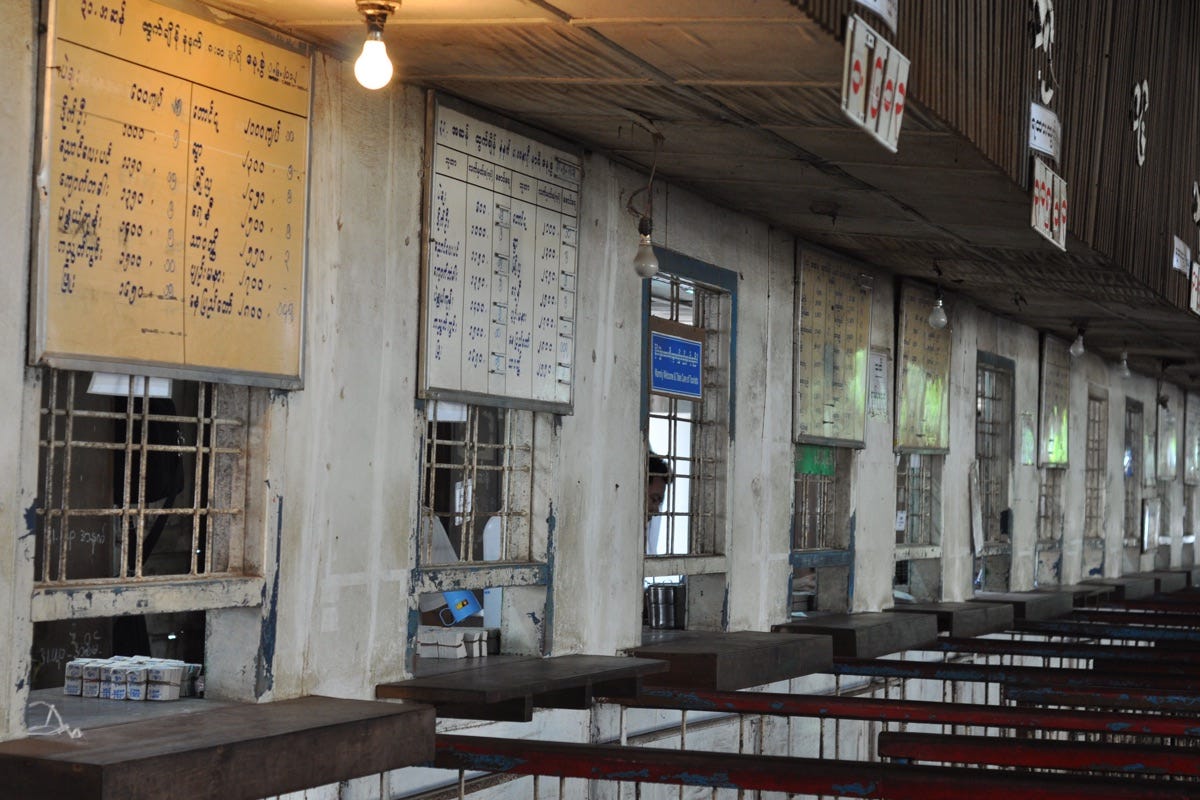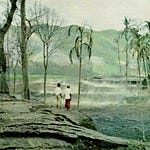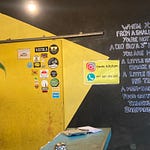Many years ago I was researching for Travelfish on a Thai island. It is a popular one, heavily developed with a tonne of visitors. Responding to this demand, it also had a tonne of hotels. While there was some beach time, there was much trudging from one mediocre hotel to another.
One place I looked at had a good beachside location. It wasn’t perfect, many of the cheaper rooms looked onto the car park for example, but in the scheme of things, it wasn’t bad. I listed it. In the write-up, I wrote the place was foreigner-owned. This was a mistake, as while it was clearly Western-managed, the owners were not. I learned this when I got an annoyed email from management. I corrected the error, noting there were “plenty of Western staff,” and let them know of the correction.
Looking for stuff to write about on Ko Chang Noi. Photo: David Luekens.
This wasn’t enough though. They wanted me to remove the bit about the budget rooms overlooking the car park. Their best rooms were beachfront, they wrote, and they wanted those highlighted. This was true, they had beachfront rooms, but at quadruple the price. I felt the budget rooms were more likely to be the rooms Travelfish readers would go for. I refused.
This annoyed them. They said I was being unfair. There was some more back and forward, but it seemed easier to delete the listing, which I did. This enraged them, but after a while, I didn’t hear from them again.
Many years later, in Indonesia, I was travelling in a somewhat remote area. While there, I found a small beachside hotel I liked. I wrote about it saying just that. As always, I used my photos.
Shack spotted—better investigate. Photo: Stuart McDonald.
A few months later I received an email from the owner. They were thankful for the write-up—it was through a Travelfish guest they’d found out about the listing. They had one quibble though, they wanted the photos changed. I had four attached to the review, one beach shot, one internal and two bungalow shots. I’m no fine-art photographer, but to my mind, they were a good representation of what I had seen.
In their email, they attached four photos they wanted me to use. They wanted all four replaced. The photos they sent me were beautiful, quite exceptional. A quick look on their Airbnb page confirmed they were from there.
Only in exceptional situations do we not use our own photos. I’d struggle to think of a dozen situations where we haven’t and we’ve listed, over the years, around 8,000 places to stay.
Some work required, Kep. Photo: Nicky Sullivan.
While their photos were beautiful, they didn’t replicate what I saw. In particular, the interior shot, which was of the same room I inspected, was hard to recognise. I wrote back and explained I would not use their photos. Like the case above, they were not happy.
My final example is from a popular coastal town in Cambodia. The place we listed as our pick—the best place to stay in town—got in touch. They wanted the listing removed.
I assumed it had changed hands or something, and I wrote to confirm this. No, it hadn’t changed hands, rather, I’m quoting here:
“Hi Stuart,
We prefer to keep control of our online presence. Please delete the listing as requested.
Regards etcetera”
Yes, Stuart, the bridge is still broken. Salavan. Photo: Cindy Fan.
The place was on Agoda, Booking, TripAdvisor, LP and all the other usual suspects. Their response seemed absurd. A word here—if the place had not been on all the above—along with the hundreds of “guest reviews,” I would have removed it. But it was. The review was staying on Travelfish. More than anything though, their response baffled me.
I refused, saying I felt as the property was listed everywhere, it would be a disservice to Travelfish readers to remove it. I never heard from them again. I did though hear from a friend living in the town. The owner, a Westerner, had invested considerable time in bad-mouthing my research efforts. They’d suggested I’d coasted from freebie to freebie, but they’d refused to pay and now “I was being a dick.” Awesome—also I didn’t even do the research for that town.
Ahhh the joys of timetable collection in Yangon. Photo: Stuart McDonald.
Anyways, where am I going with this?
Three things.
Some hotels are well used to having some—or all depending on the writer—degree of control over how they are portrayed. While there are three examples up top, I have dozens of similar tales. Errors happen and I understand the need to have these fixed as soon as possible, but opinion is opinion. If you don’t want your rooms overlooking a car park written about, don’t build rooms overlooking the car park. Your guests will thank you. Thinking about the experience for your guests—all of them—matters.
In July, high-end travel rag Travel & Leisure posted a train wreck of a piece. Titled “The 15 Best Cities in Asia,” (here I am linking to it which I guess is the point of publishing this rubbish), the listicle lists Ubud in Bali as first, and is worth quoting the lead:
“With a mix of stunning temples, rain forests, white-sand beaches, and a thriving city center, Ubud truly has something for everyone.”
Ubud has no beaches—of any sand colour. The closest beach is an hour or two away (depending on the traffic). Now I’m no fan of glossy mags, though they are capable of publishing good stuff—see this example on Trang in CNT for example—though there are so many ads it keeps crashing my browser! The listicles however are trash, and, in turn, are republished ad nauseam by cash-strapped travel sections worldwide. Spreading idiocy like the luminescent strawberry jam they never mention is included with breakfasts. This matters.
Imagine having this for breakfast in Ipoh?! Photo: Stuart McDonald.
T&L is what many hotels want. Mindless and uncritical, cliche-ridden features glossing over the problems of destinations. Problems which these pieces often contribute to. Imagine showing up in Ubud for the beach? Undisclosed comps for writers are the norm—that place you’re reading about, most likely the stay wasn’t paid for. This matters.
Lastly, the other day, Vietnam Coracle turned ten. If you’re not familiar with the title, it is an online guide to Vietnam with a focus on travel by scooter. I’ve long been a fan of the site and encourage anyone headed to the country to give it a read. While I’d quibble with some of the hotels site-owner Tom reviews, his material overall is ace. When I’m in Vietnam and on two wheels, his site is open on my phone all the time. Unlike T&L, as a writer, he is one hundred per cent transparent about how he works. This matters.
Neither Travelfish nor Vietnam Coracle are multi-million dollar enterprises. We have no fancy pants glass and brass offices in a faraway city with free yoga classes and table tennis. We both live in the region and have for years. We have a passion for what we do and the region we live in—we walk the talk. While Tom has got travelling again earlier than me, eventually we’ll be both up on the road again.
When we are, we’ll be travelling like you—and writing about it, as we see it. This matters too.
Couchfish is 100 per cent independent and reader-supported. If you’re not already a subscriber, and you’d like to show your support, become a paying subscriber today for just US$7 per month—you can find out more about Couchfish here—or simply share this story with a friend.
Don’t forget, you can find the free podcasts on Apple, Pocket Casts and Spotify as well as right here on Couchfish.



